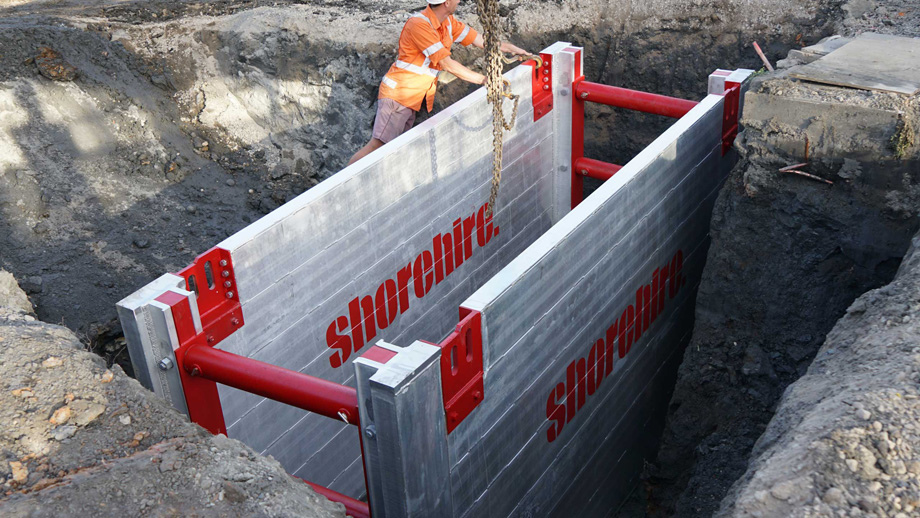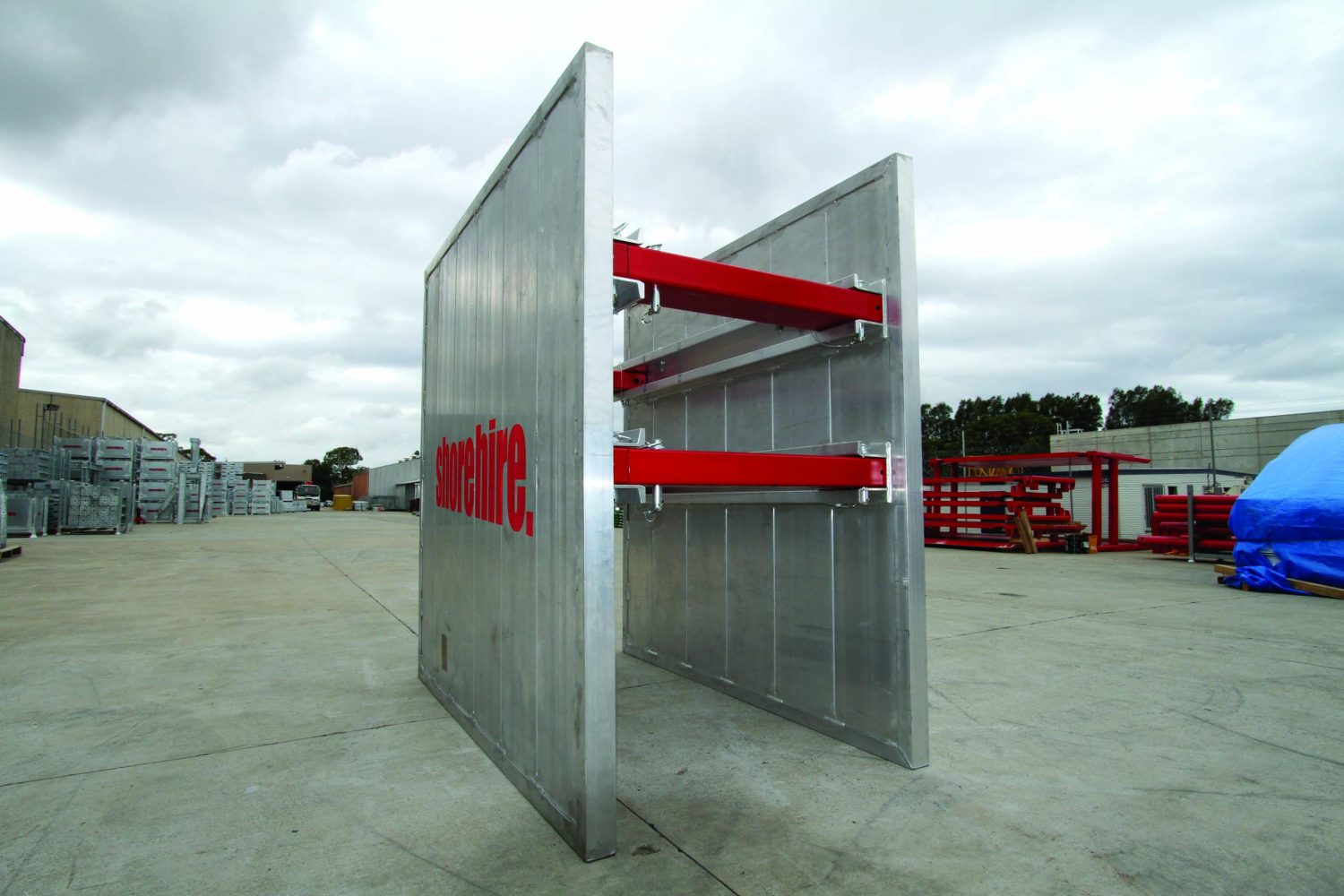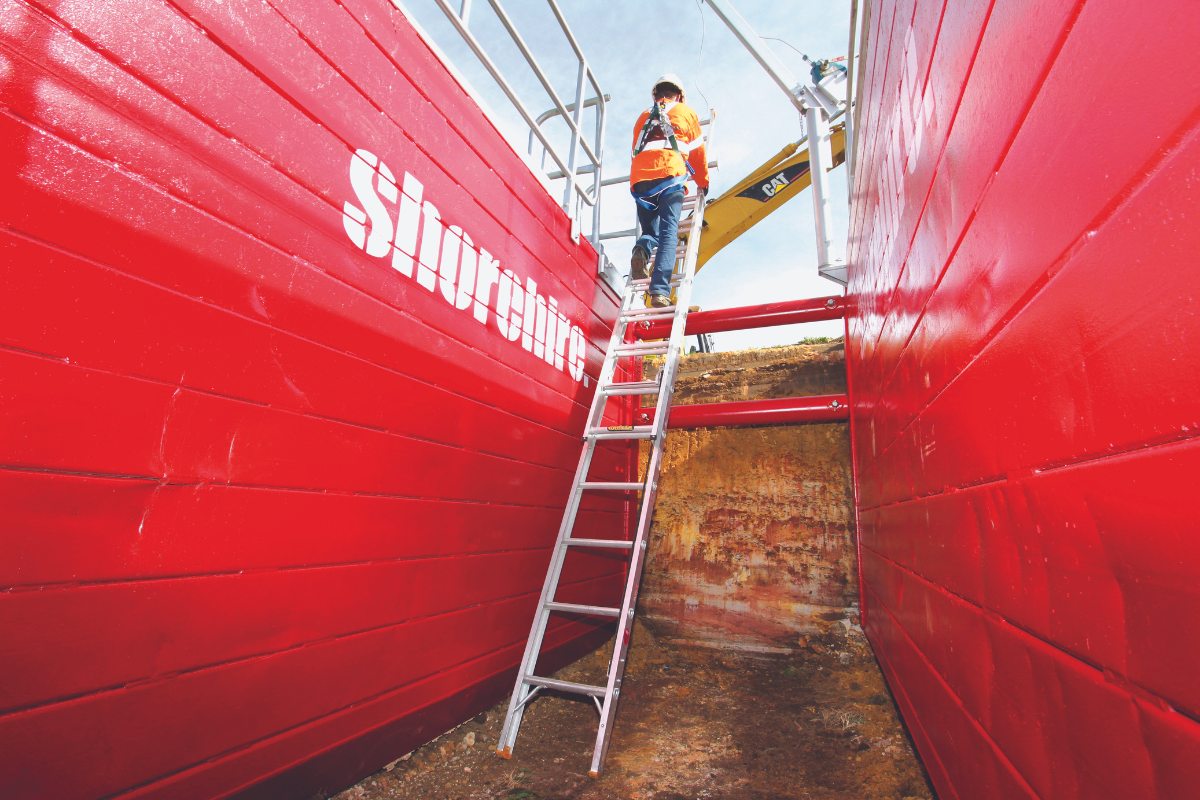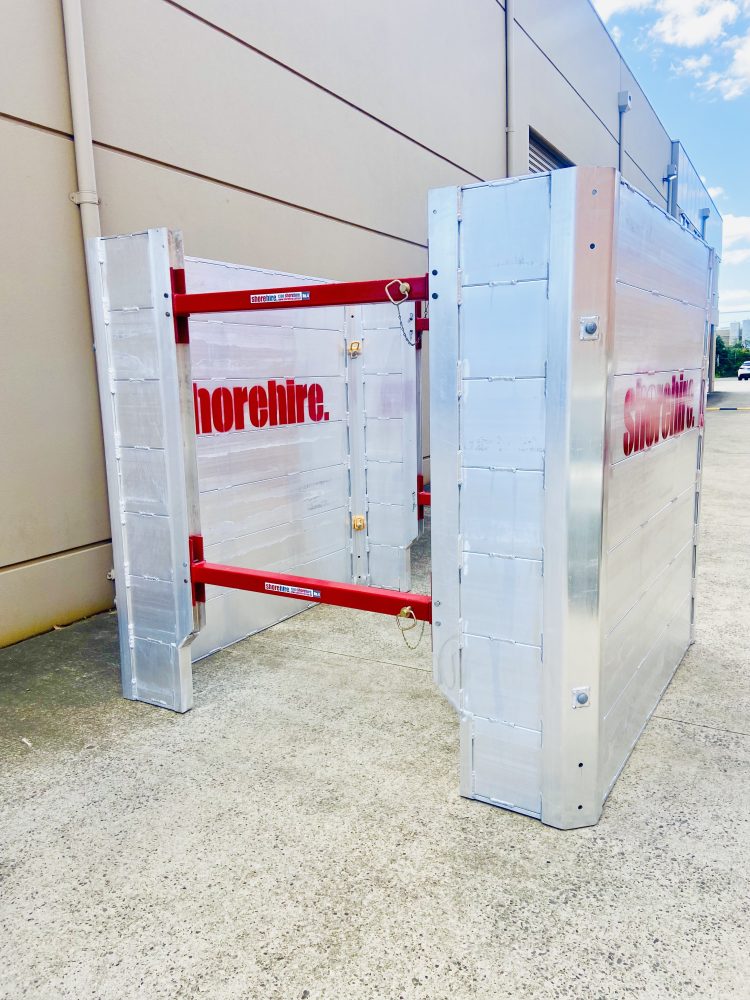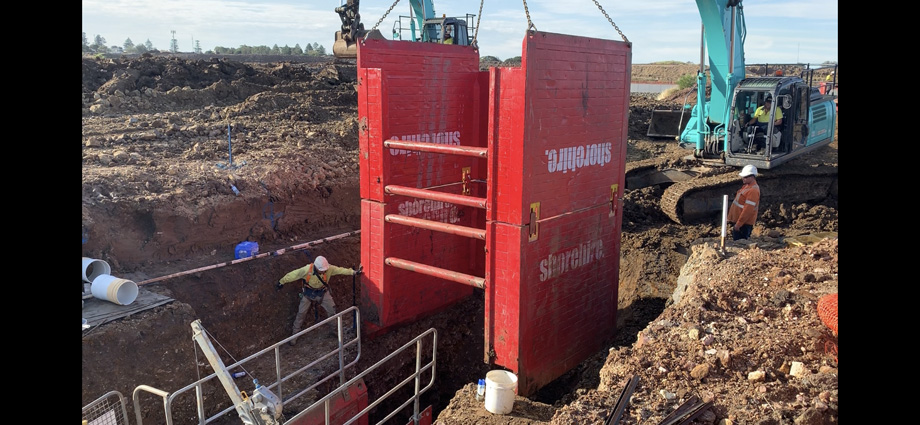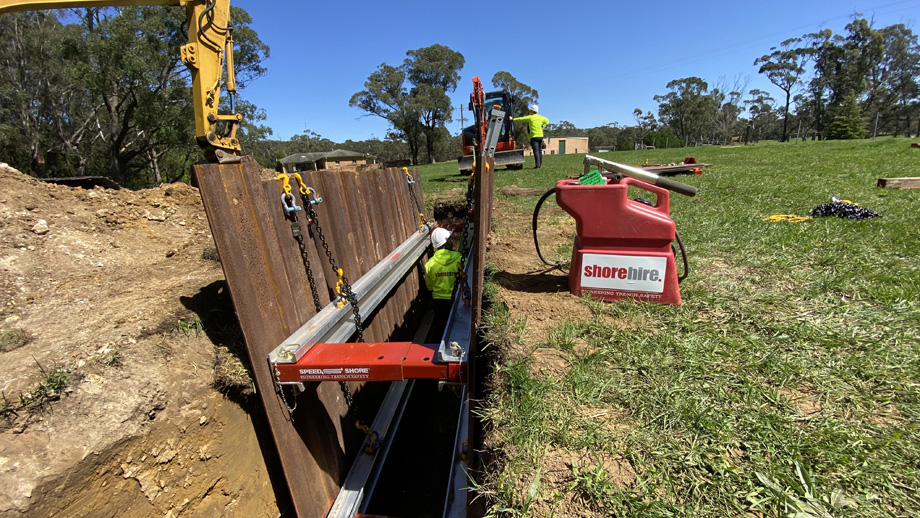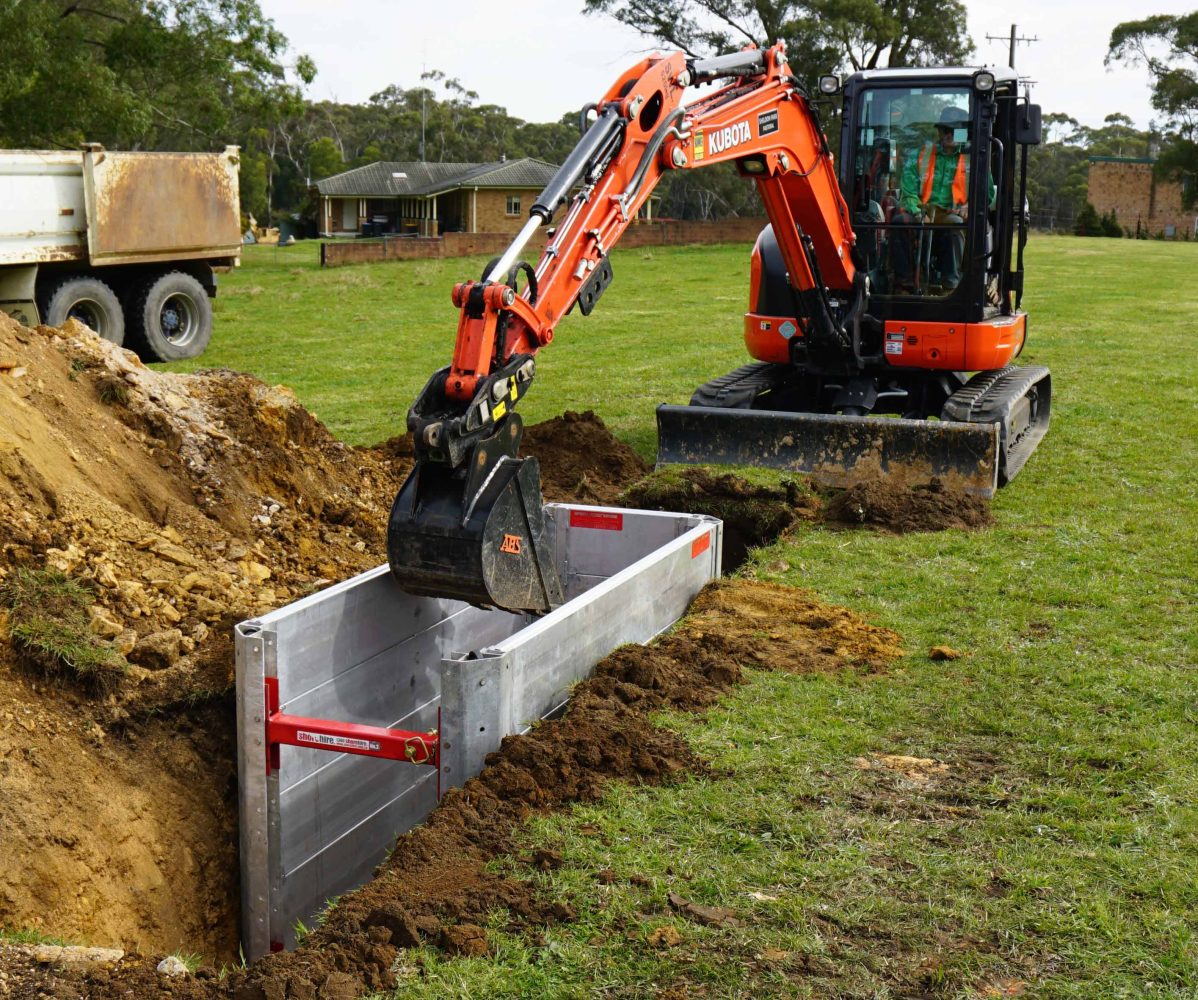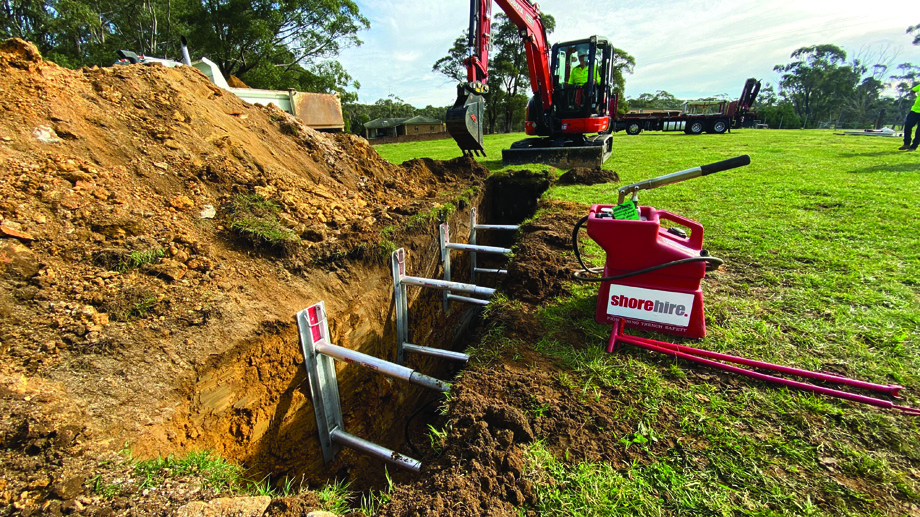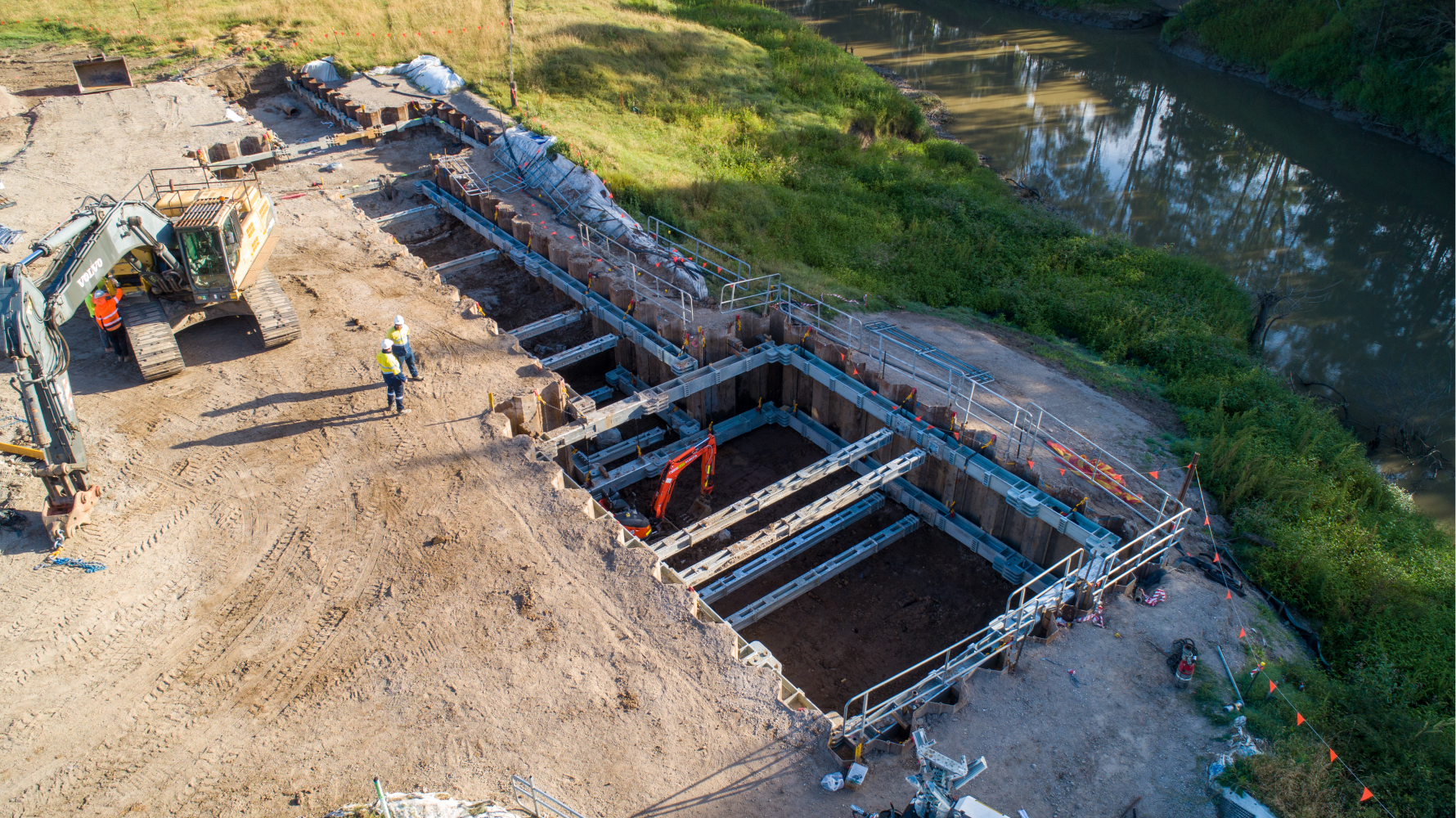Home Blog Product Info How Do Different Soils Affect Shoring?
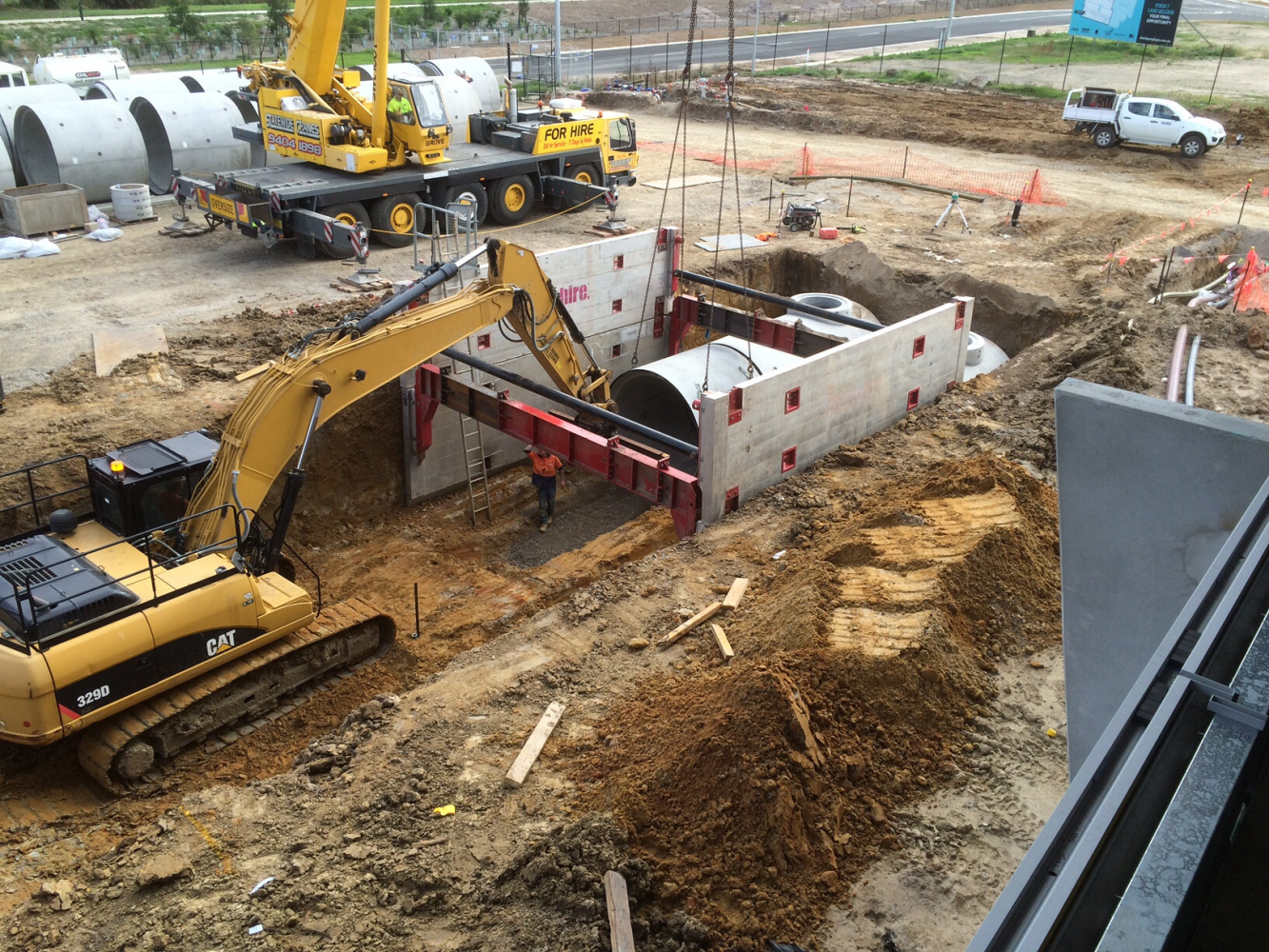
While soil might not be the first thing you consider when beginning an excavation, it is a vitally important component.
The type of soil you plan to excavate can directly affect the excavation support method and the design of shoring you will need to use for your project to make it as safe as possible.
In this blog, you will learn how soil is classified, how it can impact excavation and shoring activities, and the different types of soil we have in Australia.
How are soils classified?
Soil classification systems label soils based on their stability and how reactive they are. The term ‘reactive’ refers to the way the soil reacts to any changes in the weather and moisture content – the more reactive a soil is, the more likely it is to retain water and expand, shift, or contract.
How can soil impact excavation and shoring activities?
The impact different types of soils can have on excavation and shoring activities often depends on the soil’s cohesiveness, or how likely it is to hold or stick together. Cohesive soils are far less likely to cave in on themselves, due to the fact the trench walls are more stable than they would be in a non-cohesive soil. However, no matter how cohesive a type of soil is, the weather can significantly impact a trench’s stability. If saturated with water, some soils will not hold together well and will slide and move around, increasing the likelihood of a cave-in. Water can also make soils incredibly heavy, making soil difficult to excavate, extremely dangerous to anyone working in a trench if it collapses, and hard to remove shoring systems when a project is finished.
Other situations that lead to soil stress and failure include:
- Additional loads near the sides of the excavation, such as plant or equipment, excavated material, or people (often referred to as surcharge pressure).
- Shock and vibration that could be caused by driving and extracting sheeting and piling
- Excess water pressure caused by groundwater flow
- Particularly dry soil, which can crack or erode
What are the different types of soil in Australia?
Some of the different types of soil in Australia are:
- Clay – Clay is fine-grained, cohesive soil that is very likely to expand, shift, and contract as moisture levels change. It is the main “problem soil’ in Australia, due to its reactiveness.
- Silt – Silt is a soil that is larger than clay, but smaller than sand. It is non-cohesive and holds on to moisture, meaning that it can become compact and hard.
- Sand – Sand is a granular soil, making it extremely easy to dig, but also non-cohesive and unstable. Instead of shifting or expanding when moisture levels change, sand will get heavy, increasing the risk of cave-ins and equipment getting stuck.
- Fill – Fill is a type of soil that could contain sand, rocks, stones, or earth. It is non-cohesive and will not retain water, meaning that is not likely to expand, shift, and contract as moisture levels change.
- Rock – Excavating rock is incredibly difficult, and can also be more time-consuming and much more expensive than excavating any other soil. Rock can vary in strength from weak to very strong, which dictates the difficulty and means of excavation.
- Mud – Mud is another non-cohesive soil that can be really difficult to excavate. It can triple in weight when saturated in water, increasing the risk of cave-ins and equipment getting stuck. Mud is very likely to flow and expand in wet weather.
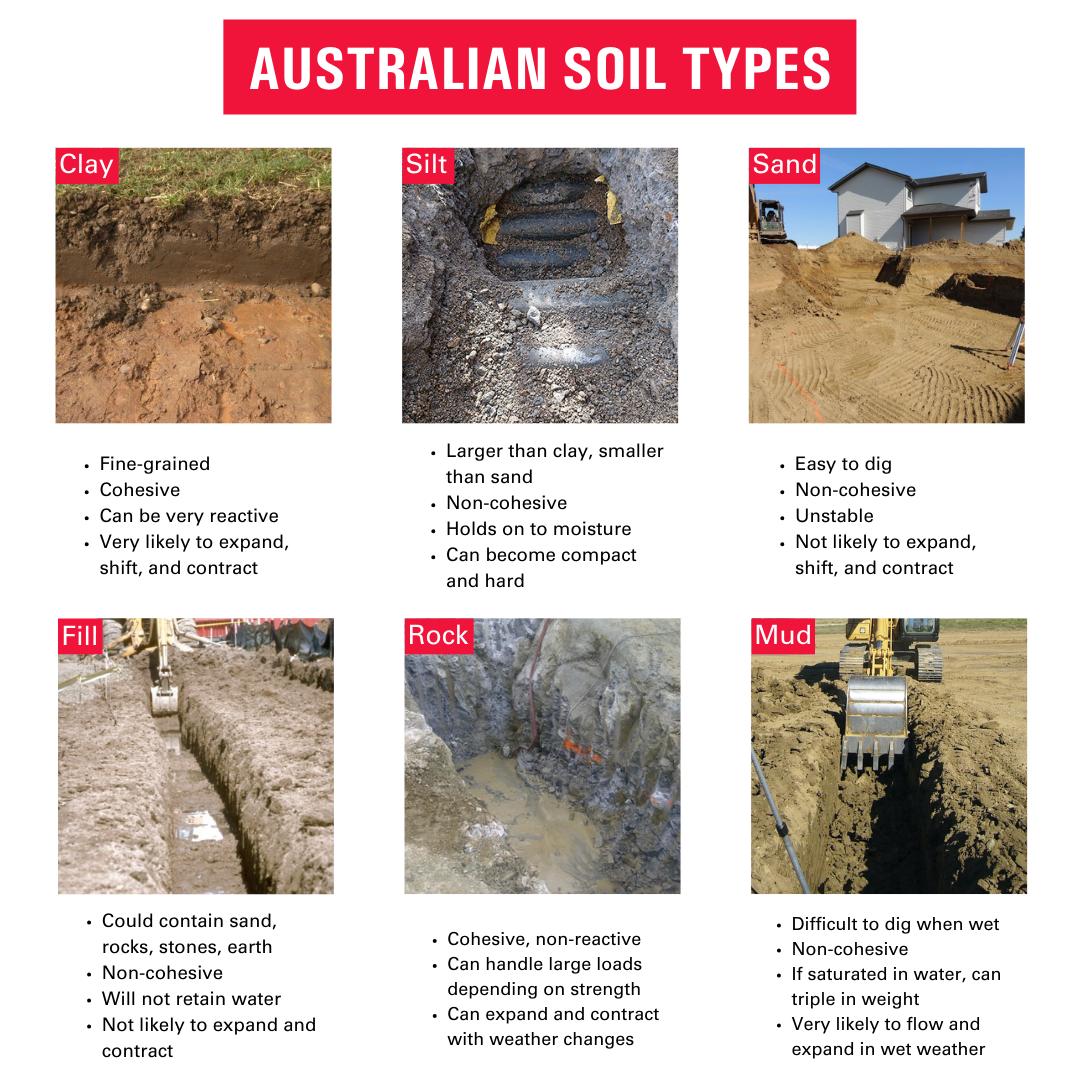
The best way to ensure that you are confident of the type of soil you will be excavating is by having the soil tested. This is done by Geotechnical Engineers, who drill deep into the ground and analyse the topsoil as well as the subsurface soil layers. Shore Hire doesn’t offer in-house Geotech reports, but we can review reports done by Geotechnical Engineering firms to determine which shoring design will be most suitable based on the type of soil found.
Our dedicated engineers and technical sales team, are here to help you get the best shoring solution for any project.
If you want to know about the different shoring products Shore Hire offers, contact our expert team today.
